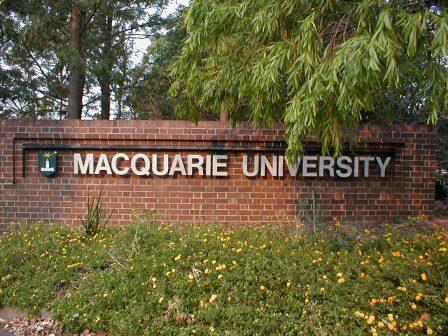Macquarie museum holds ancient spell book and other magical mysteries
An Ancient Egyptian codex from Macquarie University’s Museum of Ancient Cultures has been deciphered for the first time, revealing an invocation including both Christian and Gnostic elements, ritual instructions, and a list of 27 spells to cure demonic possession, various ailments, the effects of magic, or to bring success in love and business.

The new book translating this codex, A Coptic Handbook of Ritual Power, was edited by Associate Professor Malcolm Choat, Department of Ancient History and Director, Macquarie Ancient Cultures Research Centre; and Professor Iain Gardner, Chair of the Department of Studies in Religion, University of Sydney.
“Magic is a subject of enduring interest, both to researchers and the general public,” said Choat. “Magic in the ancient world is the subject of a number of research projects in our department, and in 2016 we will be introducing a new unit on the history of magic.”
After a long invocation, the codex outlines 27 spells, or prescriptions, which offer healing or remedies for other problems people might have:
- “Someone who is possessed: Say the formula on linseed oil and pitch. Anoint them.”
- “Love charm: Say the formula on wine. Let them drink.”
- “A binding (spell): Say the formula over a new potsherd (and) bury it at the door.”
- “So that any person be subject to you and give glory to you: Say the formula first before you go out – within your house – and before you speak with the person.”
- “When someone has a magic on them: wormwood, wine. Let him drink (it).”
- “Black jaundice: Black cumin, pepper, wine; let him drink (it). Or if it is that of the gold (i.e. yellow jaundice): milky water, wormwood; and let them wash (in it) and drink (it). Boil the water.”
- “For any sickness: Say the formula on a first (pressing) oil. Anoint them.”
- “For every staunching of blood: Say the formula on a dry gourd. Let them eat (it). If it is in the body (i.e. internal bleeding): apply with vinegar.”
“You can see here how similar magic and medicine—things that we thinks of as quite separate spheres—actually were in antiquity. So as well as being part of the history of magic and religion, this is also part of the history of medicine,” said Choat.
The edition of this codex was carried out as part of a larger project to publish the over 600 papyri held in the Museum of Ancient Cultures, now known as the Macquarie Papyri.
“The type of Coptic used makes us think it might come from the region of el-Ashmunein (ancient Hermopolis) in Upper Egypt,” says Choat. “Coptic is the final stage of the Egyptian language, and descendent of the hieroglyphs. Based on the handwriting, we think the codex was written around 700 AD.”
Macquarie University is the only place in Australia where Coptic Studies is offered, and the university has been awarded more than three-quarters of a million dollars in Australian Research Council funding for projects in the area of Coptic Studies and papyrology over the last eight years.
Gardner is also teaching a Senior Level unit on ‘Ancient Egyptian Religion and Magic’ at the University of Sydney, and is currently participating in the 2012-2014 ARC Discovery project, “The function of images, and related aspects of production and design, in magical papyri and similar artifacts of ritual power from Late Antiquity,” led by Associate Professor Jay Johnston from the University of Sydney.
The Macquarie Papyri
The Museum of Ancient Cultures at Macquarie University, Sydney, holds a small, but important collection of some 640 papyri. These are mainly Greek texts. There are also some items written in other languages and scripts, notably Demotic and Coptic (Egyptian). Most are papyri in the strictest sense, but the collection also includes a small number of items written on ostraca, parchment, and wooden tablets. Most of the texts date from the period of the third century BC to the eighth century AD.
*

































Ask A Question
Ask us about your program of interest, or if you have a question about our services.
CONTACT US TODAY